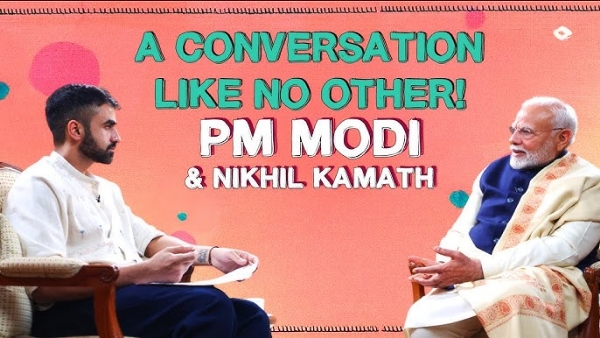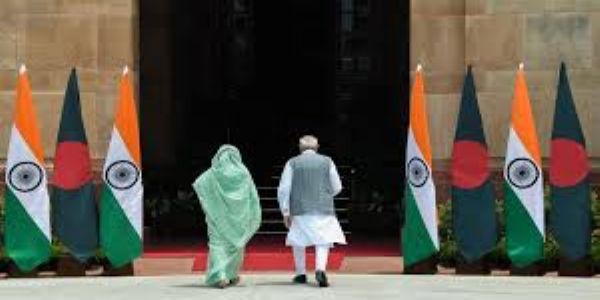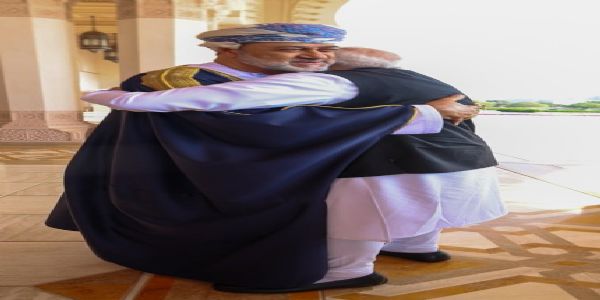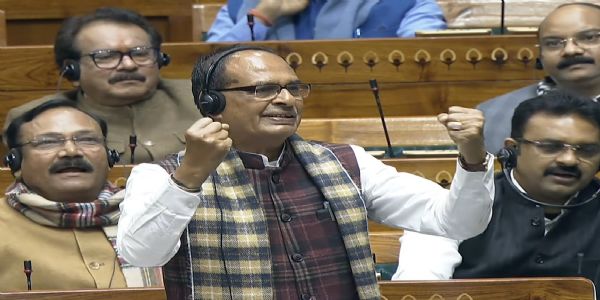
New Delhi, January 10 (HS): Prime Minister Narendra Modi said on Friday that he is not a VIP but a common man. He said that he has never been in a comfort zone and his risk-taking capacity has not been fully utilised yet.
Prime Minister Modi discussed many topics, including his childhood, friends, leaving home, his vision for youth, and the goals of his third term as the Chief Minister of Gujarat and then Prime Minister, in a podcast with Zerodha co-founder Nikhil Kamath. During this, he mentioned India's emergence as a major power on the global stage and said that in 2005, when he was an MLA, the US cancelled his visa. Today the world is standing in line for India's visa. This was Prime Minister Modi's first podcast.
Talking about the importance of idealism more than ideology, the Prime Minister said that the paths of Mahatma Gandhi and Veer Savarkar were different, but their ideology was 'freedom.' He said that in public life, being a good speaker is more important than being able to communicate well. Mahatma Gandhi used to walk with a stick but talked about non-violence. This was the power of his communication. He never wore a cap, but people around him used to wear caps. His field was politics, but he never held power or contested elections. But his samadhi has been built at Rajghat.
He said, I am not a person who changes his stance according to his convenience. I have grown up believing in only one ideology. He said, If I have to describe my ideology in a few words, I would say, 'Nation first.' Whatever fits in the 'Nation first' tagline does not bind me in the shackles of ideology and tradition. It inspired us to move forward. I am ready to leave old things and adopt new things. However, the condition is always 'Nation first.' Recalling the 2002 Godhra incident, the Prime Minister said that he became an MLA for the first time on February 24, 2002, and went to the Vidhan Sabha on February 27. He said that when such an incident happened in Godhra, he was a three-day-old MLA. Modi said, We first got the news of the train catching fire, then gradually we started getting reports of casualties. I was in the House, and I was worried. As soon as I came out, I said I wanted to go to Godhra. There was only one helicopter there. I think it was of ONGC, but they said that since it is a single engine, they cannot allow any VIP in it. We had an argument, and I said that whatever happens, I will be responsible for it. I reached Godhra, and I saw that painful scene, those dead bodies. I felt everything, but I knew that I was sitting in a situation where I had to stay out of my emotions and natural instincts. I did whatever I could to control myself. When asked if his risk-taking capacity has increased with time, the Prime Minister said that his risk-taking capacity has not been fully utilised yet. I have never thought about myself, and the one who does not think about himself has immense risk-taking capacity. Giving the mantra of success to the countrymen, especially the youth, he said that he has never lived in the comfort zone. He said, The kind of life I have lived, even small things give me satisfaction. Modi said that when people get used to the comfort zone, they fail in life. He said, It is my good fortune that I have not spent my life in the comfort zone; I have never lived there. Since I was out of my comfort zone, I knew what I had to do. Maybe I am unfit for comfort. Recalling his tenure as Gujarat chief minister, Modi said, When I became CM, I shared three commitments: I will leave no stone unturned in my efforts, I will not do anything for myself, and I am a human being—I may make mistakes, but I will not make mistakes with bad intentions. He said these principles became the mantra of his life. Main bhi manushya hoon devta thoda hoon, he said.
PM Modi said that he was an MLA when the US government denied him a visa. As an individual, it was not a big deal to go to the US; I had been there before, but I felt insulted by an elected government and country, and I was upset about what was happening. That day I held a press conference where I said that the US government has cancelled my visa. I also said that I see an India where the world will stand in line for visas; this is my statement from 2005, and today we are standing in 2025. So, I can see that now is India's time.
Sharing an interesting anecdote about his early days as Prime Minister in 2014, Modi said that world leaders had made courtesy visits to congratulate him on assuming office. Chinese President Xi Jinping was also present during this time. During their talks, Xi expressed his desire to visit India and especially Gujarat. The Prime Minister said that Xi's interest in Gujarat was due to its historical connection with his own village in China. Xi told Modi that the famous Chinese philosopher and traveller Xuanzang, known for his extensive travels across India, had spent the longest part of his visit in Vadnagar, Modi's birthplace. On his return to China, Xuanzang settled in Xi's village, creating a unique bond between the hometowns of the two leaders.
On the question of what qualifications youth need to become politicians, the Prime Minister said that good people should keep coming into politics. Youth should come to politics with a mission and not ambition. He said that becoming a politician is one thing and being successful in politics is another thing. I believe that for this you need dedication and commitment; you should be there for the people, and you should be a good team player. If you consider yourself above everyone else and think that everyone will follow you, then maybe his politics will work and he will win elections, but there is no guarantee that he will be a successful politician. He said that if you see, in the beginning, all our great leaders came out of the freedom movement. Their thought process, their maturity, is different. Their words, their behaviour, everything reflects extreme dedication towards the society. Therefore, I believe that good people should keep coming into politics and that too with a mission, not with ambition.
Kamath questioned whether it seems that the whole world is moving towards war. Should we stop because of this? On this, Prime Minister Modi said that during this crisis we have constantly said that we are not neutral. He said, I am in favour of peace. The Prime Minister said that the world trusts us because there is no double standard in us; whatever we say, we say it clearly. Even in this period of crisis, we have repeatedly said that we are not neutral. I am in favour of peace, and whatever efforts will be made for this, I will support them. I say this to Russia, Ukraine, Iran, Palestine, and Israel. They trust me that what I am saying is right.
Hindusthan Samachar / Indrani Sarkar








